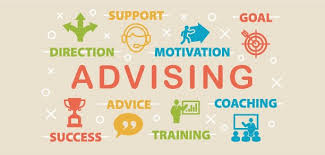- The Fascinating World of Slot Games: History, Evolution, and Modern Trends
- Slot Games: From Mechanical Reels to Digital Entertainment Powerhouses
- Slot Games: History, Evolution, and the Thrill of Chance
- The Fascinating World of Slot Games: History, Evolution, and Modern Appeal
- The Fascinating World of Slot Games: History, Evolution, and Modern Innovations
The Importance of Academic Counseling in Student Success

Academic counseling plays a crucial role in shaping students’ educational journeys, fostering their personal development, and helping them make informed decisions مشاوره کنکور ریاضی about their academic and career paths. At its core, academic counseling is a supportive and guiding service designed to ensure that students receive the appropriate advice, tools, and resources to thrive in their studies and achieve their long-term goals.
Understanding Academic Counseling
Academic counseling involves a collaborative relationship between students and counselors aimed at helping students navigate the complexities of their educational experience. Counselors provide guidance on academic planning, course selection, time management, study strategies, and other areas critical to a student’s success. Additionally, academic counselors often serve as a point of contact for students facing academic challenges, such as struggling with grades, managing workload, or balancing personal and academic responsibilities.
The Role of Academic Counselors
- Academic Planning and Course Selection: One of the primary responsibilities of academic counselors is helping students select courses that align with their academic goals and interests. By reviewing degree requirements, prerequisites, and offering insight into course content, counselors assist students in building a well-rounded and manageable course schedule that sets them up for success.
- Identifying Strengths and Weaknesses: Academic counselors work with students to identify their strengths and areas for improvement. Whether it’s studying habits, time management skills, or test-taking strategies, counselors help students identify areas that may need development and offer personalized solutions to address these issues.
- Career and Goal Development: While academic success is central to counseling, academic counselors also help students make connections between their academic experiences and future career goals. They guide students in choosing courses, internships, or extracurricular activities that can provide valuable skills and experiences for their chosen career paths.
- Supporting Mental Health and Well-being: Academic counselors are often trained to recognize signs of stress, burnout, or mental health challenges that students may face. Offering guidance on stress management, promoting self-care, and directing students to mental health resources are critical aspects of academic counseling. By addressing emotional and mental well-being, counselors help students stay focused and motivated throughout their academic journey.
The Benefits of Academic Counseling
- Improved Academic Performance: With the right guidance, students can make better academic decisions, prioritize their work, and stay on track with their goals. Academic counseling helps students avoid common pitfalls, such as course overload or poor study habits, which can negatively impact their performance.
- Increased Retention Rates: Students who receive academic counseling are more likely to stay engaged in their studies and complete their degree programs. By addressing issues early on, such as academic struggles or personal challenges, counselors can help prevent students from dropping out or disengaging from their studies.
- Personalized Support: Every student has unique needs and circumstances. Academic counseling offers personalized advice that considers a student’s academic strengths, interests, challenges, and goals. This tailored approach ensures that students receive the support they need to succeed in a way that works best for them.
- Greater Self-Advocacy: By guiding students through the decision-making process, academic counselors empower them to take ownership of their academic paths. As students engage in discussions about their educational goals, they develop a stronger sense of responsibility and self-advocacy, which can translate into more confidence in their academic and personal lives.
Challenges in Academic Counseling
While academic counseling offers a wealth of benefits, it is not without its challenges. Counselors often face large caseloads and may be limited in time to give each student the individualized attention they need. Additionally, as the educational landscape changes, counselors must stay updated on evolving academic policies, course offerings, and career opportunities to provide relevant and up-to-date advice.
Moreover, some students may face difficulties in reaching out for help due to stigma, lack of awareness, or personal barriers. It’s essential for educational institutions to work towards creating an environment where academic counseling is seen as an integral part of the student experience and a positive resource for students of all backgrounds.
The Future of Academic Counseling
As technology and educational practices evolve, so too does the role of academic counseling. The rise of digital tools and platforms has expanded access to academic counseling services, allowing students to receive guidance remotely and at their convenience. Furthermore, advancements in artificial intelligence (AI) may eventually support counselors by offering predictive analytics to help identify students at risk of academic difficulty or dropout, enabling more proactive intervention.
As more institutions recognize the value of holistic student support, academic counseling is expected to become even more integrated into the overall student experience. Offering not just academic advice but also personalized mentorship, wellness support, and career guidance will ensure that students are prepared to navigate both their educational journeys and the challenges they will face after graduation.
Conclusion
In a world where academic pressure and uncertainty are common, academic counseling serves as a beacon of guidance and support. It ensures that students are not alone in their academic journey but have the expertise, resources, and encouragement they need to thrive. By providing personalized, goal-oriented guidance, academic counselors make a lasting impact on students’ success, helping them navigate the complexities of their education and prepare for a bright future.
